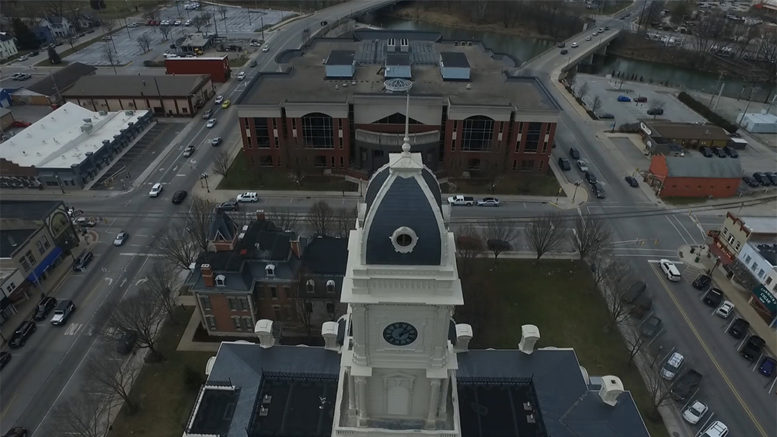Interagency program helps guide three dozen residents to recovery
On the heels of National Recovery Month in September, the Hamilton County Council on Alcohol and Other Drugs has a lot to celebrate. The county’s Community Overdose Prevention Effort (C.O.P.E.) coalition identified and helped 35 residents battling substance use disorders get the treatment they needed in its first year being funded by a Division of Mental Health and Addiction grant.

Gunn
“Our Quick Response Team is dispatched to the home of someone who has survived an overdose within 24 to 72 hours after the event,” said Program Coordinator Kelly Gunn. “The non-emergency, multidisciplinary team is made up of a law enforcement officer for safety, a medical first responder for vitals, and a peer recovery specialist who is in active recovery themselves. Together they offer to set up treatment for the person.”
Last year, 170 people were referred to C.O.P.E., the Quick Response Team made 121 home visits, and 35 people enrolled in the program.
One of those participants, 70-year-old Marsha (name changed to protect privacy), contemplated suicide after she was arrested for drunk driving. “I’ve been an alcoholic my entire life,” she said. “I thought it was incurable and I would eventually die from the disease. I just didn’t want to live like that anymore.”
Help came in the form of a Quick Response Team.
“I looked out my window and there stood a police officer, a firefighter, and a woman,” Marsha said. “I thought they were coming back to get me, but it turns out they were there to help. If it weren’t for them, I wouldn’t be here now.”
The Quick Response Team helped Marsha find online treatment at Aspire Indiana Health. She has been sober since November. Marsha now has a network of tight-knit friends, goes to support meetings several times a week, and is working to repair a fractured relationship with her daughter.
“If this team shows up at your front door, please let them in,” Marsha implored. “Listen to what they have to say. You don’t have to fight for your sobriety alone. Isn’t it worth your life to give it a try?”
More than 115 members representing more than 50 agencies and businesses now support Hamilton County’s C.O.P.E. program. Peer recovery coach Jennifer Bellah says it’s that kind of support that makes it possible for individuals to recover.
“The days following an overdose are very dark days and to have a hand to reach out to and offer support can be just the help you need,” Bellah said. “I know it was for me. There is a better way and together we can offer love and support to those lost in addiction.”

